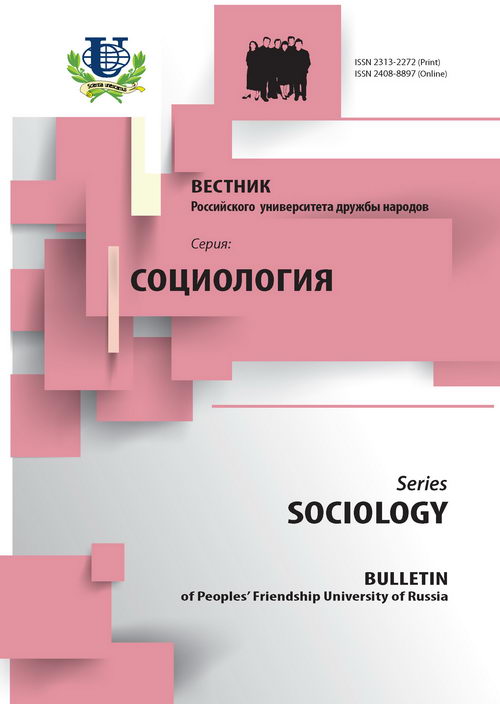Social activity of the youth: Approaches to the assessment of forms, motives and factors in the contemporary Russian society
- Authors: Trotsuk IV1, Sokhadze KG1
-
Affiliations:
- Peoples’ Friendship University of Russia
- Issue: No 4 (2014)
- Pages: 58-74
- Section: Articles
- URL: https://journals.rudn.ru/sociology/article/view/6072
- ID: 6072
Cite item
Full Text
Abstract
About the authors
I V Trotsuk
Peoples’ Friendship University of Russia
Email: irina_trotsuk@rambler.ru
Sociology Chair
K G Sokhadze
Peoples’ Friendship University of Russia
Email: keti.sokhadze@gmail.com
Sociology Chair
References
Supplementary files












